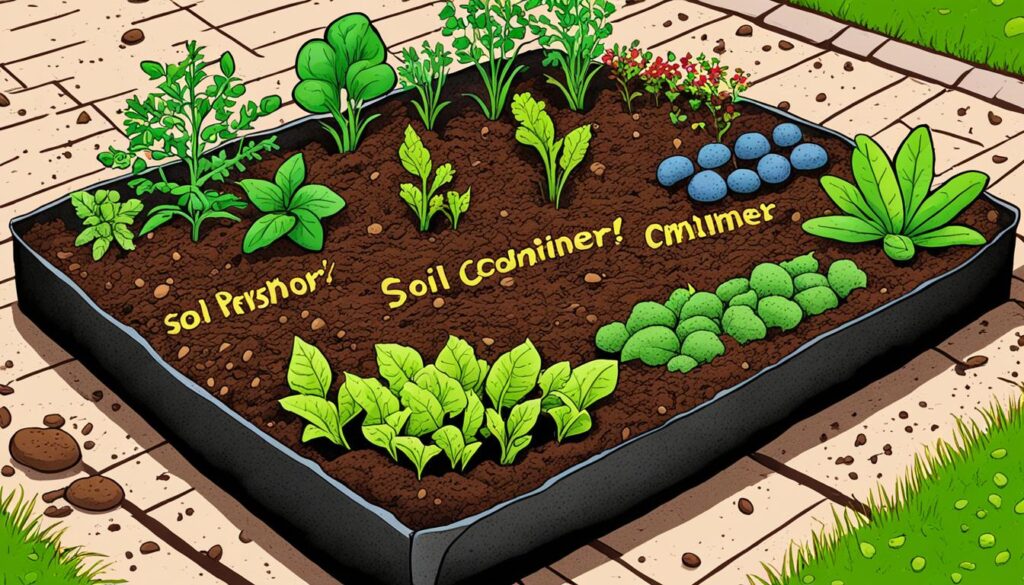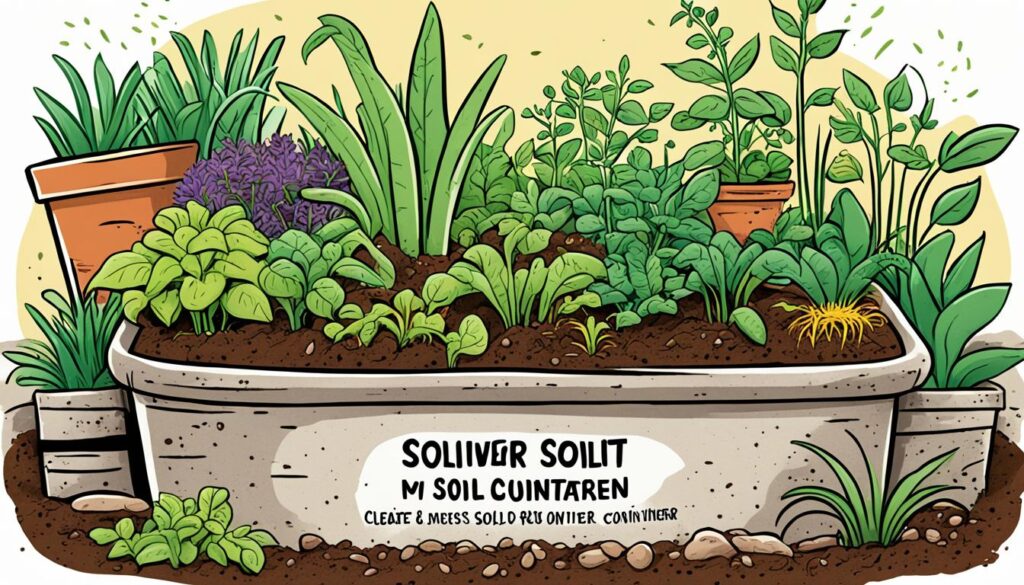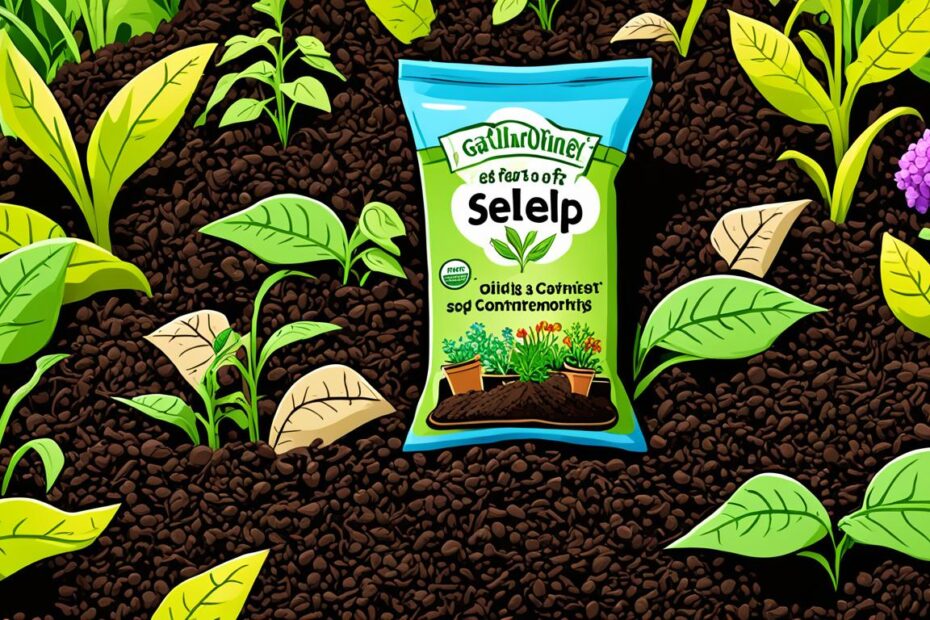Have you ever wondered how to achieve healthy growth for your plants? Or how to improve the overall performance of your soil? The answer may lie in understanding the power of soil conditioner. But what exactly is soil conditioner, and what role does it play in unlocking the full potential of your plants and garden?
In this article, we will explore the concept of soil conditioner and its vital role in promoting healthy growth and soil performance. We will delve into the importance of soil amendments and how they relate to soil conditioners. So, are you ready to discover the secrets of soil improvement and harness its potential for your garden?
- Soil conditioners enhance the structure of the soil, improving air exchange, water retention, root growth, and fertilizer performance.
- Soil conditioners are a subset of soil amendments that specifically focus on improving soil structure.
- Using a soil conditioner offers multiple benefits, such as improving soil structure, nutrient availability, and water retention.
- By using soil conditioners, you can unlock the full potential of your soil and create an ideal environment for healthy plant growth.
- Liquid humate is a powerful soil conditioner derived from decomposed organic matter, offering sustainable solutions for soil health.
What Are Soil Amendments?
Soil amendments are products that enhance the performance of topsoil, providing numerous benefits for your garden or farm. These products are specifically designed to address common soil issues and improve its overall quality for optimal plant growth. By incorporating soil amendments into your gardening routine, you can effectively adjust the pH levels, improve water retention, and facilitate nutrient exchange, creating a healthier soil environment for your plants to thrive.
A wide range of soil amendments are available, each serving a specific purpose based on the unique needs of your soil. Whether you’re dealing with acidic soil, poor drainage, or nutrient deficiencies, there is a soil amendment to help remedy these issues and promote healthier soil composition.
“Soil amendments are like superheroes for your soil, giving it the strength and support it needs to create a flourishing garden.”
Benefits of Soil Amendments:
- Adjusts pH levels: Soil amendments can help balance the soil’s acidity or alkalinity, ensuring the optimal pH range for nutrient availability and plant growth.
- Improves water retention: With the ability to enhance water-holding capacity, soil amendments prevent excessive drainage and allow plants to access moisture when needed, reducing water stress.
- Aids nutrient exchange: By improving soil structure and composition, soil amendments facilitate the exchange of essential nutrients between the soil and plant roots, promoting healthy growth and nutrient uptake.
“Soil amendments act as a natural remedy, providing the necessary elements for optimal soil health and plant vitality.”
To better understand the benefits of soil amendments, let’s take a closer look at the pH levels, water retention, and nutrient exchange capabilities they provide:
| Benefit | Description |
|---|---|
| pH Level Adjustment | Soil amendments can help neutralize acidic or alkaline soil, creating a balanced pH environment suitable for improved nutrient availability and plant growth. |
| Water Retention | Soil amendments enhance the soil’s moisture-holding capacity, reducing water runoff and allowing plants to access water for longer periods, even during dry spells. |
| Nutrient Exchange | By improving soil structure and composition, soil amendments optimize the exchange of essential nutrients between the soil and plant roots, ensuring consistent access to vital elements for healthy growth. |
Through the application of soil amendments, you can create the ideal soil conditions for your plants, fostering healthier and more productive growth. Whether you’re an avid gardener or a crop farmer, incorporating soil amendments into your soil management practices is a proven way to unlock the true potential of your soil and achieve thriving, bountiful harvests.
What Are Soil Conditioners?
Soil conditioners play a crucial role in enhancing the structure of the soil and creating an ideal environment for plants to thrive. They are a specific type of soil amendment that focuses on improving soil structure, air exchange, water retention, root growth, and fertilizer performance.
Soil conditioners have the unique ability to bind soil particles together, creating a more stable soil structure. This improved structure allows for better air exchange, ensuring that plant roots receive the oxygen they need for optimal growth and development.
In addition to promoting air circulation, soil conditioners also enhance water retention. They help the soil retain moisture, ensuring that plant roots have access to water even in dry conditions. This is particularly beneficial for areas with low rainfall or during periods of drought.

Furthermore, soil conditioners support healthy root growth. By binding soil particles together, they create a more porous soil structure that allows roots to penetrate easily and spread out. This promotes stronger and more extensive root systems, which are essential for efficient nutrient absorption and overall plant health.
Lastly, soil conditioners enhance fertilizer performance. By improving soil structure and nutrient retention, they ensure that fertilizers are effectively absorbed and utilized by plant roots. This maximizes the benefits of fertilizers and reduces the risk of nutrient runoff or leaching.
Common organic materials used as soil conditioners include compost, manure, grass clippings, wood chips, and peat. These natural ingredients provide essential nutrients to the soil while improving its overall structure and fertility.
With their ability to enhance soil structure, air exchange, water retention, root growth, and fertilizer performance, soil conditioners are vital for promoting healthy plant growth and creating thriving gardens.
CHECK OUR RECOMMENDED PRODUCTSBenefits of Using a Soil Conditioner
Using a soil conditioner offers several benefits for your plants and garden. It improves the soil structure, making it more loose and allowing for better root growth, water flow, and nutrient exchange. Soil conditioners increase the availability of nutrients in the soil and enhance the cation exchange capacity, which allows for the better exchange of nutrients between the soil and plant roots. They also improve water retention, ensuring that the soil retains moisture in dry conditions. Overall, using a soil conditioner promotes all-round performance and helps create a fertile, productive environment for your plants.

“Using a soil conditioner can significantly improve the health of your plants and the vitality of your garden. It’s like giving your soil a makeover, transforming it into a rich and nourishing environment that fosters optimal growth and development.”
Conclusion
Soil conditioners play a vital role in promoting healthy plant growth and improving soil health. By enhancing soil structure, increasing nutrient availability, enhancing cation exchange capacity, and improving water retention, they create an optimal environment for plants to thrive.
A powerful soil conditioner that you can rely on is liquid humate, derived from humic substances found in decomposed organic matter. With its ability to bind soil particles and improve soil properties, liquid humate is a natural choice for enhancing the performance of your soil.
For the environmentally conscious gardener or farmer, utilizing Biogro certified soil conditioners is a sustainable choice. These organic solutions, such as Biogro certified humic acid fertilizers, not only improve soil health but also boost yields in a way that respects our planet’s delicate balance. By incorporating organic soil conditioners and certified fertilizers, you are paving the way towards a greener, more sustainable future for your garden or farm.
FAQ
What is a soil conditioner?
A soil conditioner is a type of soil amendment that focuses on improving the structure of the soil. It helps bind soil particles together, improving air exchange, water retention and flow, root growth, and the performance of fertilizers.
How does a soil conditioner benefit plants and gardens?
Using a soil conditioner offers several benefits for plants and gardens. It improves the soil structure, allowing for better root growth, water flow, and nutrient exchange. It also increases nutrient availability, enhances cation exchange capacity, and improves water retention, creating a fertile and productive environment for plants to thrive.
What are soil amendments?
Soil amendments are products that are added to topsoil to improve its performance. They can help adjust the pH levels of the soil, improve water retention, and aid in nutrient exchange. They are beneficial for gardens with specific issues, such as acidic soil or compacted ground.
How are soil conditioners different from soil amendments?
Soil conditioners are a subset of soil amendments that specifically focus on improving the structure of the soil. While soil amendments address various soil issues, soil conditioners aim to enhance soil formation by binding soil particles, improving air exchange, water retention and flow, root growth, and the effectiveness of fertilizers.
What are some examples of soil conditioners?
Soil conditioners are generally organic in nature and can include ingredients such as compost, manure, grass clippings, wood chips, and peat. These natural materials help improve soil structure and promote healthy plant growth.
